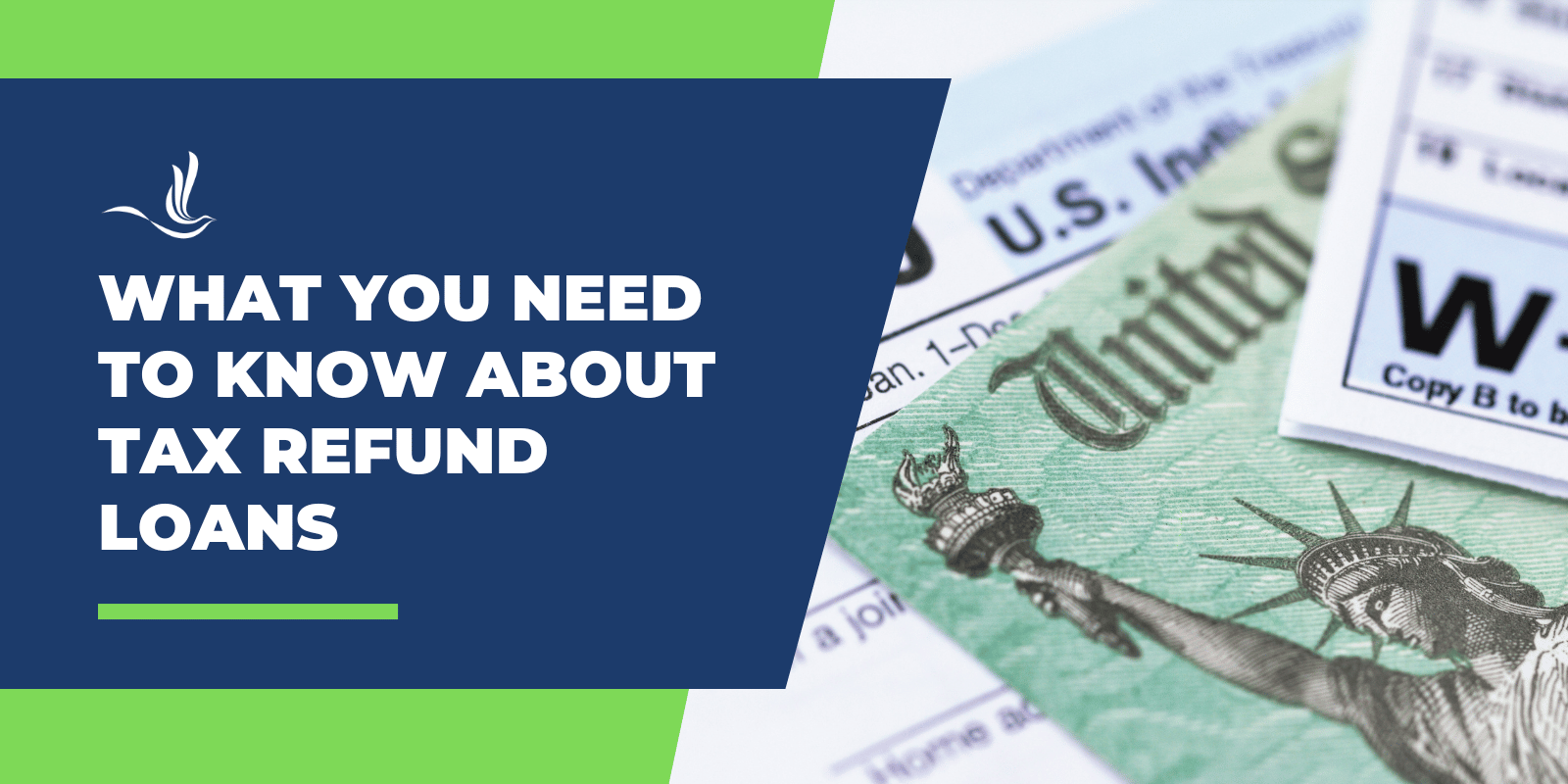
It’s no secret that tax refunds are the best part about filing taxes each year. However, the wait times for receiving a tax refund can be unexpectedly long. This is especially true if the IRS has a backlog of unprocessed returns. Enter tax refund loans. You may have heard or read this term while filing this year. But what are they? How do they work? What are the pros and cons of opting for a tax refund loan? Here, we will break down these key questions to help you decide if they are worth considering.
What are tax refund loans?
Sometimes referred to as refund anticipation loans (RALs), tax refund loans are intended to provide borrowers with an advance on their anticipated tax refund amount. Borrowers can obtain a portion of their refund virtually immediately rather than waiting for the standard processing time. They usually become available at the beginning of the year through February. Luckily, these loans are easy to qualify for and usually do not require a credit check.
How do tax refund loans work?
Typically, a borrower can request a tax refund loan from their tax preparer if they offer this service. Some tax preparation companies do require a minimum refund amount, ranging from $250 to $500. If approved, your tax preparer will open a temporary bank account on your behalf. They will then inform the IRS to send your tax refund to this account. Then you will be issued a loan via paper check, prepaid card, or direct deposit into a personal bank account. Once your tax refund is processed by the IRS and deposited into your temporary account, your tax preparer will then deduct any fees associated with the loan and the tax preparation itself, plus loan interest. The remaining refund will be sent to you.
What are the pros of tax refund loans?
Tax refund loans provide you with instant access to a portion of your anticipated tax refund. This allows you to meet immediate needs for cash. Many tax refund loan companies do not charge any upfront fees or interest. This fact makes it a potentially cheaper alternative than other short-term loans. The application process for tax return loans is often simple and involves little documentation. So, it could be a practical choice for people in need of finances right away.
What are the cons of tax refund loans?
First, access to a tax refund loan means having to pay for tax preparation fees. This would be a con specifically for those who have simple tax situations that may be used to filing for free. Also, while some tax refund loan companies do not charge upfront costs, they may charge high interest rates or fees, which can considerably diminish the amount of your real tax refund. Taking out a loan against your tax refund presumes that you will receive a refund from the IRS. However, if your refund is less than expected or if you owe taxes, you may end up in a terrible financial situation of owing a lender.
Should I consider a tax refund loan?
The value of a tax refund loan is determined by your specific financial status and needs. If you need money right away for an emergency and don’t have any other options, a tax return loan could be a temporary answer. However, the related costs, such as high interest rates and fees, must be carefully considered, and whether the benefits outweigh the potential negatives. If you’re still unsure, you can always speak to a qualified tax professional about your specific situation. Optima Tax Relief is the nation’s leading tax resolution firm with over a decade of experience helping taxpayers with tough tax situations.
Contact Us Today for a Free Consultation